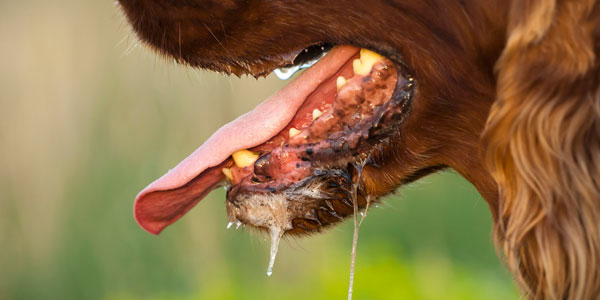Professor Dr Her Royal Highness Princess Chulabhorn Mahidol of Thailand is championing efforts to make her country rabies-free by 2020, in line with the wider initiative to end human rabies deaths by 2030, worldwide.

During a recent visit to the headquarters of the World Health Organisation (WHO) in Geneva, Switzerland, she shed some light on the campaign.
Rabies is a fatal but preventable zoonotic disease that predominantly affects poor and rural populations in Africa and Asia. The disease is transmitted via bites and scratches from infected animals, and dogs are responsible for around 99% of human cases.
Preventing human rabies deaths requires a “One Health” approach, coordinated across different sectors: dog vaccination is key, as are accessible and affordable measures, such as prophylaxis (PEP), for people who are exposed.
“To eliminate rabies, you have to give people the knowledge they need and also teach them about their responsibilities,” said Professor Dr Her Royal Highness Princess Chulabhorn Mahidol. According to the WHO, Her Royal Highness’ commitment is helping to engage and motivate the public to prevent rabies throughout Thailand, from central government to village levels.
Through mass dog vaccination, and improved access to life-saving rabies PEP, Thailand has reduced the number of human rabies cases by more than 90% since the 1980s.
Dr T. Hemachudha, Head of the WHO Collaborating Centre for Research and Training on Viral Zoonoses at the Chulalongkorn University in Bangkok, Thailand recognises the progress: “Thailand’s mission to eliminate human rabies can be accomplished by 2020.”
The country is developing and implementing novel rabies-control strategies, such as cost and doses saving intradermal vaccine administration for humans. Intradermal vaccination is safe, effective and 60-80% cheaper than traditional intramuscular PEP, and WHO encourages its uptake in other endemic settings.
While Thailand has made significant progress, “The most important next step, is to get PEP out to the village level, where we could save many thousands of lives… and figure out how to vaccinate 70% of all dogs in a sustainable way,” according to Dr H. Wilde, also from the Chulalongkorn University.
“Villages are far away from operation rooms of cities and Bangkok,” said Professor Dr Her Royal Highness Princess Chulabhorn Mahidol. “We need mobile units so that we can go anywhere to provide care to people and service the dogs as appropriately as possible.”
Her Royal Highness’s project aims to both increase dog vaccination coverage and manage the country’s dog and cat population in order to reduce rabies.
